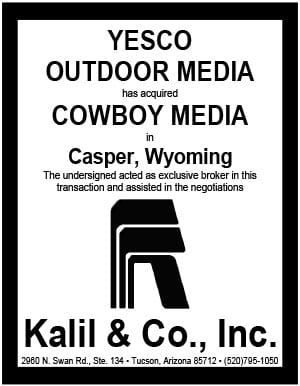 By Richard Rothfelder, Rothfelder and Falick.
By Richard Rothfelder, Rothfelder and Falick.
Billboard Insider reported in its January 22nd edition on rights of first refusal (“ROFR”) clauses in billboard leases. The article also provided a suggested ROFR provision, and recommended using such a clause to prevent Landmark Infrastructure or other unanticipated entities from becoming an unfriendly lessor.
Our law firm has recently encountered numerous landlord-tenant disputes, including litigation over ROFR clauses. One pending case concerns the sale of property in violation of our billboard company client’s right of first refusal contained in their ground lease, which provides as follows:
During any term of this Lease and for a period of Ninety (90) days following any termination of this Lease, Lessor grants Lessee the right of first refusal to match any offer acceptable to Lessor for the use or purchase of the Leased Premises. A written copy of any such third party offer received by Lessor shall be delivered to Lessee by certified mail-return receipt requested. Lessee shall then have twenty (20) business days from the date of receipt in which to match such offer by giving notice of acceptance to Lessor.
The original owner of the property and lessor sold the property to the new landowner, without providing the billboard company with notice of the offer and opportunity to match it prior to the sale. The new landowner therefore acquired the property subject to the billboard company’s option to purchase the property on the same terms and conditions under which the new landowner purchased the property. After the billboard company announced its intention and readiness to purchase the property, the old and new landowners refused, and litigation ensued over the enforceability of the ROFR.
Given these facts, which are typical in the fights over ROFRs we’ve handled, there are several legal principles that support the billboard company’s position. In Texas, for example, “a right of first refusal, also known as a preemptive or preferential right, empowers its holder with a preferential right to purchase the subject property on the same terms offered by or to a bona fide purchaser.” Tenneco Inc. v. Enter. Prod. Co “It requires the owner, before selling the property to another, to offer the property to the rightholder on the same terms or conditions specified in the offer by or to a bona fide purchaser.” Jarvis v. Peltie. “The rightholder does not have a duty to act in order to exercise his preferential purchase right unless and until he receives a reasonable disclosure of the terms of the contemplated conveyance.” McMillan v. Dooley. “A transfer in violation of the preemptive right is equivalent to a declaration by the owner that he intends to sell the property.” Jarvis v. Peltie. “When a purchaser who has knowledge of the right of first refusal purchases real property, he stands in the shoes of the original seller when specific performance is sought and may be compelled to convey title to the first purchaser.” Indeed, “it is indisputable that a purchaser from a lessor who has given lessee a right of first refusal to buy takes the property subject to that right and lessee must be granted the opportunity to purchase at the price transferred.” Sanchez v. Dickinson.
I agree with Insider that rights of first refusal are valuable tools for the billboard company. In addition to guarding against an unanticipated and unfriendly lessor, ROFR clauses also afford the billboard company the opportunity to acquire the land under its billboard at a favorable price, and to perhaps carve out an easement for the billboard and sell the remainder for a profit. Therefore, ROFR provisions should be included in billboard ground leases whenever possible.
[wpforms id=”9787″]
Paid Advertisement

















